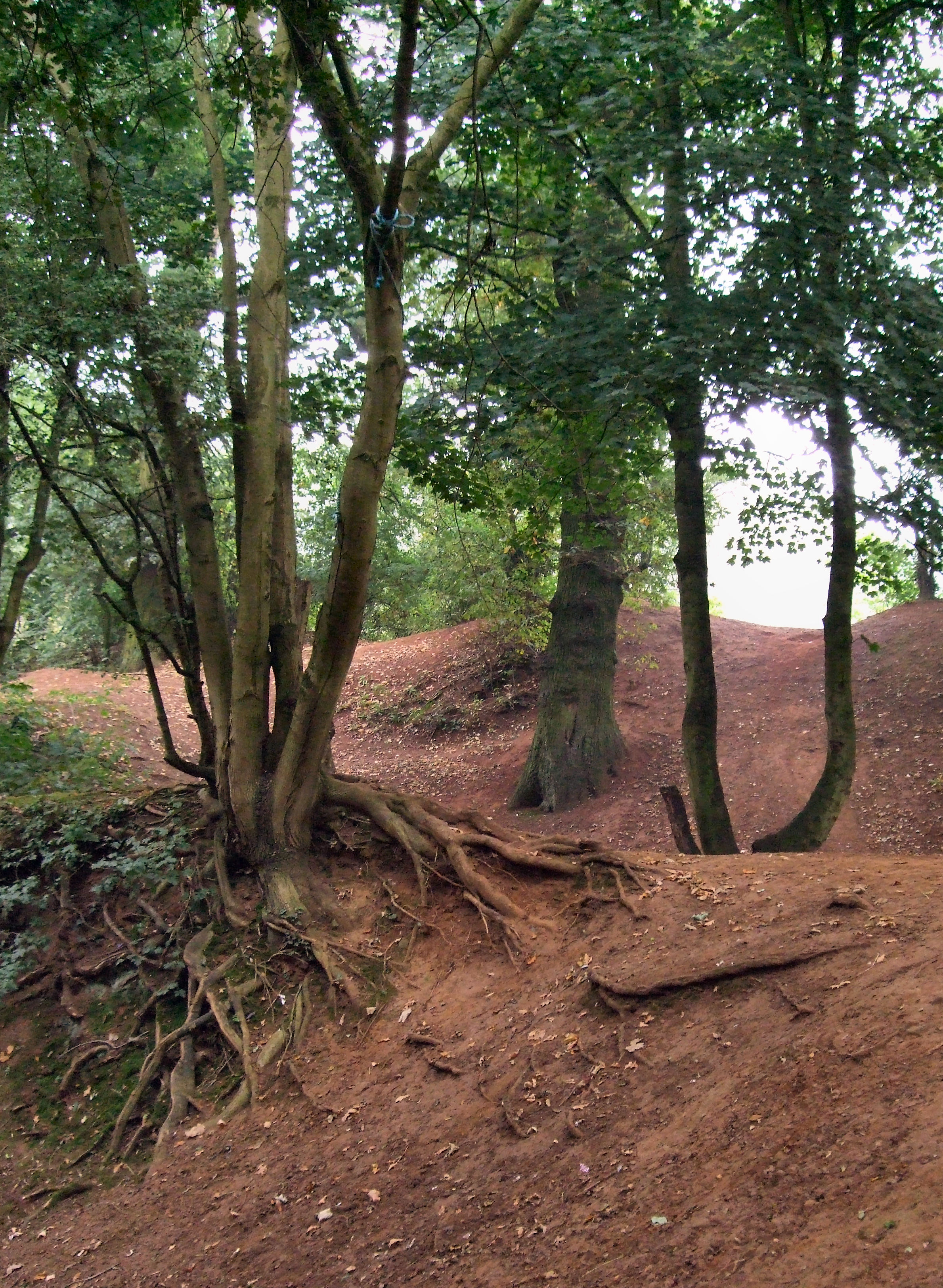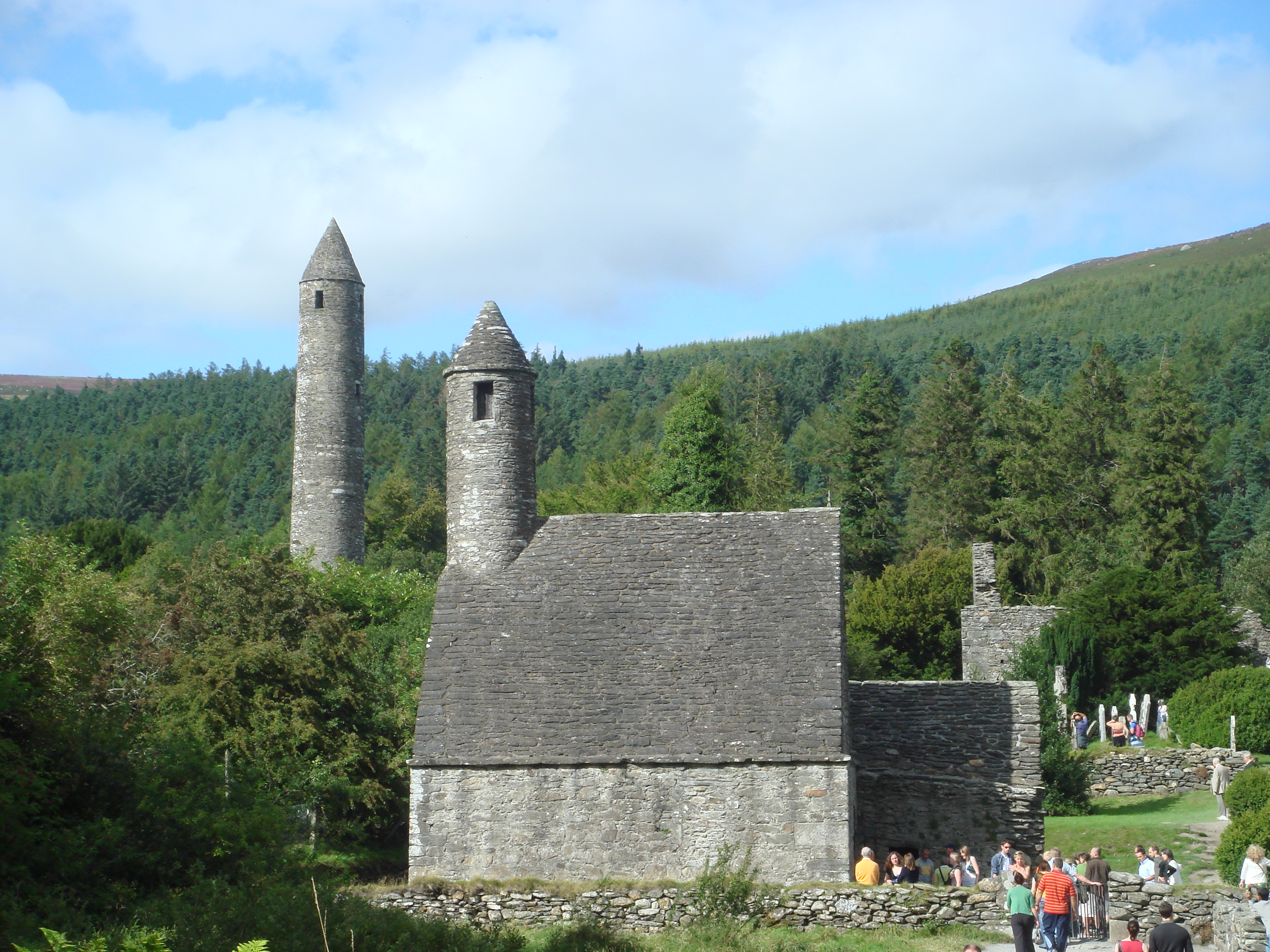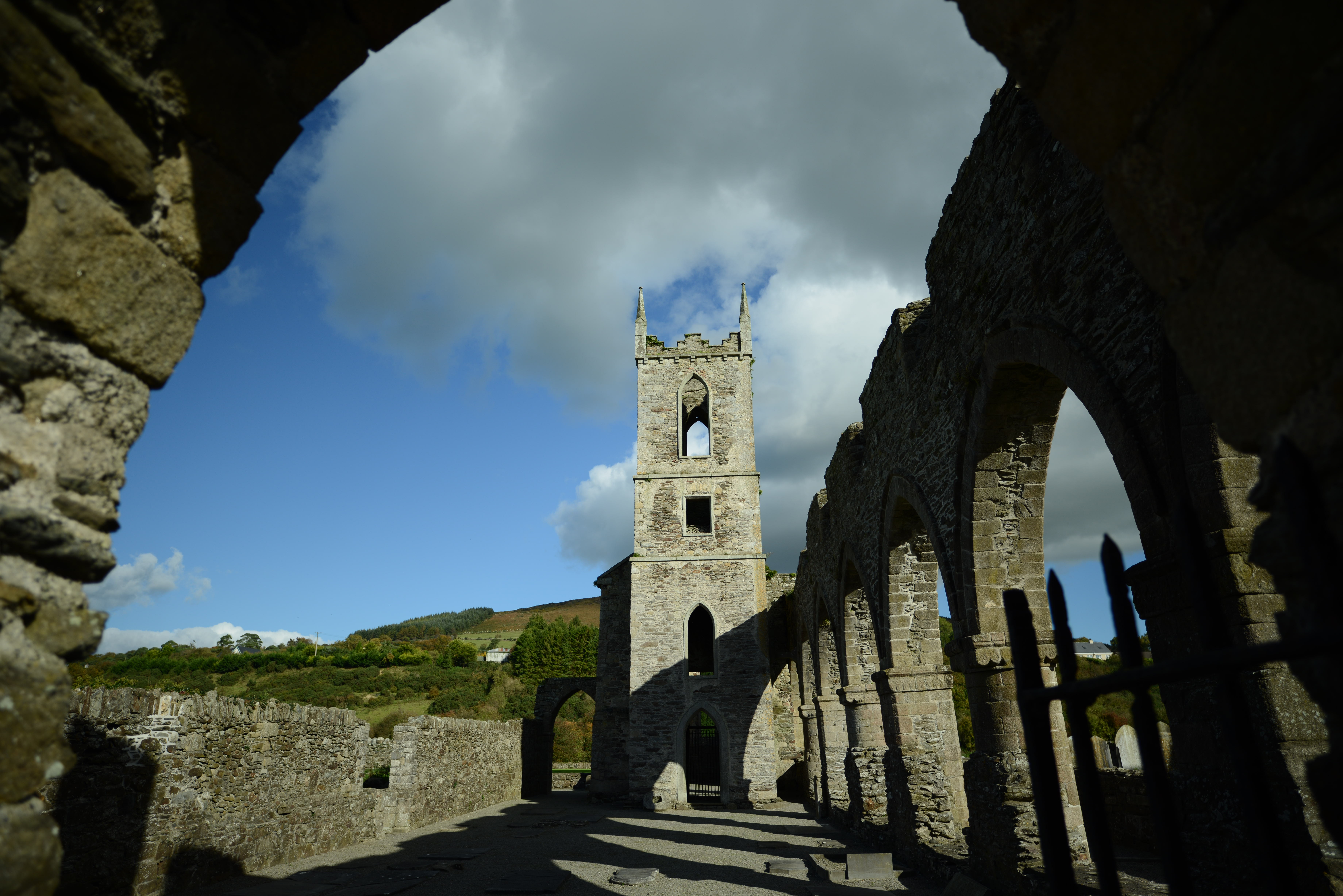|
Morley Saunders
Morley Saunders (1671-1737) was an Irish politician, barrister and landowner. He followed in his father's footsteps by becoming a member of the Irish House of Commons and Prime Serjeant-at-law. He is mainly remembered today as the builder of Saunders' Grove, the family home in Wicklow. The town of Swanlinbar, County Cavan, where he was a leading landowner, is partially named after his father. Early life He was born in County Wexford, third son of Robert Saunders (died 1708), a wealthy lawyer and member of Parliament, who was Prime Serjeant 1703-1708; nothing seems to be known about his mother. Morley's grandfather, Colonel Robert Saunders, had been Governor of Kinsale during the Interregnum, but retained his substantial landholdings in Wexford after the Restoration of Charles II. Morley, unlike his grandfather, was described as a "passionate Tory". He had two elder brothers, Walter and Joseph, who died without issue. His father acquired substantial leasehold lands in County Laoi ... [...More Info...] [...Related Items...] OR: [Wikipedia] [Google] [Baidu] |
Barrister
A barrister is a type of lawyer in common law jurisdictions. Barristers mostly specialise in courtroom advocacy and litigation. Their tasks include taking cases in superior courts and tribunals, drafting legal pleadings, researching law and giving expert legal opinions. Barristers are distinguished from both solicitors and chartered legal executives, who have more direct access to clients, and may do transactional legal work. It is mainly barristers who are appointed as judges, and they are rarely hired by clients directly. In some legal systems, including those of Scotland, South Africa, Scandinavia, Pakistan, India, Bangladesh, and the British Crown dependencies of Jersey, Guernsey and the Isle of Man, the word ''barrister'' is also regarded as an honorific title. In a few jurisdictions, barristers are usually forbidden from "conducting" litigation, and can only act on the instructions of a solicitor, and increasingly - chartered legal executives, who perform tasks such ... [...More Info...] [...Related Items...] OR: [Wikipedia] [Google] [Baidu] |
Assize
The courts of assize, or assizes (), were periodic courts held around England and Wales until 1972, when together with the quarter sessions they were abolished by the Courts Act 1971 and replaced by a single permanent Crown Court. The assizes exercised both civil and criminal jurisdiction, though most of their work was on the criminal side. The assizes heard the most serious cases, which were committed to it by the quarter sessions (local county courts held four times per year), while the more minor offences were dealt with summarily by justices of the peace in petty sessions (also known as magistrates' courts). The word ''assize'' refers to the sittings or sessions (Old French ''assises'') of the judges, known as "justices of assize", who were judges who travelled across the seven circuits of England and Wales on commissions of "oyer and terminer", setting up court and summoning juries at the various assize towns. Etymology Middle English < |
Members Of The Parliament Of Ireland (pre-1801) For County Wexford Constituencies
Member may refer to: * Military jury, referred to as "Members" in military jargon * Element (mathematics), an object that belongs to a mathematical set * In object-oriented programming, a member of a class ** Field (computer science), entries in a database ** Member variable, a variable that is associated with a specific object * Limb (anatomy), an appendage of the human or animal body ** Euphemism for penis * Structural component of a truss, connected by nodes * User (computing), a person making use of a computing service, especially on the Internet * Member (geology), a component of a geological formation * Member of parliament * The Members, a British punk rock band * Meronymy, a semantic relationship in linguistics * Church membership, belonging to a local Christian congregation, a Christian denomination and the universal Church * Member, a participant in a club or learned society A learned society (; also learned academy, scholarly society, or academic association) is ... [...More Info...] [...Related Items...] OR: [Wikipedia] [Google] [Baidu] |
1737 Deaths
Events January–March * January 5 – Spain and the Holy Roman Empire sign instruments of cession at Pontremoli in the Grand Duchy of Tuscany in Italy, with the Empire receiving control of Tuscany and the Grand Duchy of Parma and Piacenza, in return for Don Carlos of Spain being recognized as King of Naples and King of Sicily. * January 9 – The Empires of Austria and Russia enter into a secret military alliance that leads to Austria's disastrous entry into the Russo-Turkish War. * January 18 – In Manila, a peace treaty is signed between Spain's Governor-General of the Philippines, Fernándo Valdés y Tamon, and the Sultan Azim ud-Din I of Sulu, recognizing Azim's authority over the islands of the Sulu Archipelago. * February 20 – France's Foreign Minister, Germain Louis Chauvelin, is dismissed by King Louis XV's Chief Minister, Cardinal André-Hercule de Fleury * February 27 – French scientists Henri-Louis Duhamel du Monceau and Geo ... [...More Info...] [...Related Items...] OR: [Wikipedia] [Google] [Baidu] |
1630s Births
Year 163 ( CLXIII) was a common year starting on Friday (link will display the full calendar) of the Julian calendar. At the time, it was known as the Year of the Consulship of Laelianus and Pastor (or, less frequently, year 916 ''Ab urbe condita''). The denomination 163 for this year has been used since the early medieval period, when the Anno Domini calendar era became the prevalent method in Europe for naming years. Events By place Roman Empire * Marcus Statius Priscus re-conquers Armenia; the capital city of Artaxata is ruined. Births * Cui Yan (or Jigui), Chinese official and politician (d. 216) * Sun Shao (or Changxu), Chinese chancellor (d. 225) * Tiberius Claudius Severus Proculus, Roman politician * Xun Yu, Chinese politician and adviser (d. 212) Deaths * Kong Zhou, father of Kong Rong (b. 103) * Marcus Annius Libo Marcus Annius Libo was a Roman Senator active in the early second century AD. Life Libo came from the upper ranks of the Roman aristocr ... [...More Info...] [...Related Items...] OR: [Wikipedia] [Google] [Baidu] |
Court Of Chancery (Ireland)
The Court of Chancery was a court which exercised equitable jurisdiction in Ireland until its abolition as part of the reform of the court system in 1877. It was the court in which the Lord Chancellor of Ireland presided. Its final sitting place was at the Four Courts in Dublin, which still stands. History The Chancery in Ireland was set up in 1232, following the model of the Court of Chancery of England. The court was abolished under the Supreme Court of Judicature Act (Ireland) 1877 and its jurisdiction transferred to the Chancery Division of the newly established High Court of Justice in Ireland, while the Lord Chancellor presided over the Court of Appeal in Ireland. In 1920, the High Court was split into separate courts for Northern Ireland and Southern Ireland under the Government of Ireland Act 1920. While the Northern Ireland court still maintains a separate Chancery Division, the Irish Free State abolished the divisions of the High Court under the Courts of Justice Ac ... [...More Info...] [...Related Items...] OR: [Wikipedia] [Google] [Baidu] |
William III Of Orange
William III (William Henry; ; 4 November 16508 March 1702), also widely known as William of Orange, was the sovereign Prince of Orange from birth, Stadtholder of Holland, Zeeland, Utrecht, Guelders, and Overijssel in the Dutch Republic from the 1670s, and King of England, Ireland, and Scotland from 1689 until his death in 1702. As King of Scotland, he is known as William II. He is sometimes informally known as "King Billy" in Ireland and Scotland. His victory at the Battle of the Boyne in 1690 is commemorated by Unionists, who display orange colours in his honour. He ruled Britain alongside his wife and cousin, Queen Mary II, and popular histories usually refer to their reign as that of "William and Mary". William was the only child of William II, Prince of Orange, and Mary, Princess Royal, the daughter of King Charles I of England, Scotland, and Ireland. His father died a week before his birth, making William III the prince of Orange from birth. In 1677, he married his cou ... [...More Info...] [...Related Items...] OR: [Wikipedia] [Google] [Baidu] |
Northampton
Northampton () is a market town and civil parish in the East Midlands of England, on the River Nene, north-west of London and south-east of Birmingham. The county town of Northamptonshire, Northampton is one of the largest towns in England; it had a population of 212,100 in its previous local authority in the United Kingdom Census 2011, 2011 census (225,100 as of 2018 estimates). In its urban area, which includes Boughton, Northamptonshire, Boughton and Moulton, Northamptonshire, Moulton, it had a population of 215,963 as of 2011. Archaeological evidence of settlement in the area dates to the Bronze Age Britain, Bronze Age, Roman conquest of Britain, Romans and Anglo-Saxons, Anglo-Saxons. In the Middle Ages, the town rose to national significance with the establishment of Northampton Castle, an occasional royal residence which regularly hosted the Parliament of England. Medieval Northampton had many churches, monasteries and the University of Northampton (thirteenth century), ... [...More Info...] [...Related Items...] OR: [Wikipedia] [Google] [Baidu] |
High Sheriff Of Wicklow
The High Sheriff of Wicklow was the British Crown's judicial representative in County Wicklow, Ireland from Wicklow's formation in 1606 until 1922, when the office was abolished in the new Free State and replaced by the office of Wicklow County Sheriff. The sheriff had judicial, electoral, ceremonial and administrative functions and executed High Court Writs. In 1908, an Order in Council made the Lord-Lieutenant the Sovereign's prime representative in a county and reduced the High Sheriff's precedence. However the sheriff retained his responsibilities for the preservation of law and order in the county. The usual procedure for appointing the sheriff from 1660 onwards was that three persons were nominated at the beginning of each year from the county and the Lord Lieutenant then appointed his choice as High Sheriff for the remainder of the year. Often the other nominees were appointed as under-sheriffs. Sometimes a sheriff did not fulfil his entire term through death or other event a ... [...More Info...] [...Related Items...] OR: [Wikipedia] [Google] [Baidu] |
County Carlow
County Carlow ( ; ga, Contae Cheatharlach) is a county located in the South-East Region of Ireland, within the province of Leinster. Carlow is the second smallest and the third least populous of Ireland's 32 traditional counties. Carlow County Council is the governing local authority. The county is named after the town of Carlow, which lies on the River Barrow and is both the county town and largest settlement, with over 40% of the county's population. Much of the remainder of the population also reside within the Barrow valley, in towns such as Leighlinbridge, Bagenalstown, Tinnahinch, Borris and St Mullins. Carlow shares a border with Kildare and Laois to the north, Kilkenny to the west, Wicklow to the east and Wexford to the southeast. Carlow is known as "The Dolmen County", a nickname based on the Brownshill Dolmen, a 6,000-year-old megalithic portal tomb which is reputed to have the heaviest capstone in Europe, weighing over 100 metric tonnes. The town of Carlow w ... [...More Info...] [...Related Items...] OR: [Wikipedia] [Google] [Baidu] |
County Wicklow
County Wicklow ( ; ga, Contae Chill Mhantáin ) is a county in Ireland. The last of the traditional 32 counties, having been formed as late as 1606, it is part of the Eastern and Midland Region and the province of Leinster. It is bordered by the Irish Sea to the east and the counties of Wexford to the south, Carlow to the southwest, Kildare to the west, and South Dublin and Dún Laoghaire–Rathdown to the north. Wicklow is named after its county town of Wicklow, which derives from the name (Old Norse for "Vikings' Meadow"). Wicklow County Council is the local authority for the county, which had a population of 155,258 at the 2022 census. Colloquially known as the "Garden of Ireland" for its scenerywhich includes extensive woodlands, nature trails, beaches, and ancient ruins while allowing for a multitude of walking, hiking, and climbing optionsit is the 17th largest of Ireland's 32 counties by area and the 15th largest by population. It is also the fourth largest of Lein ... [...More Info...] [...Related Items...] OR: [Wikipedia] [Google] [Baidu] |
Baltinglass
Baltinglass, historically known as Baltinglas (), is a town in south-west County Wicklow, Ireland. It is located on the River Slaney near the border with County Carlow and County Kildare, on the N81 road. Etymology The town's Irish name, ''Bealach Conglais'' means "the way of Conglas". It was the name of a palace at Baltinglass, where, according to the Irish etymologist Patrick Weston Joyce, the powerful Leinster king Branduff resided in the sixth century. Conglas was a member of the mythological warrior collective, the Fianna. A nineteenth-century explanation is found in Samuel Lewis' A Topographical Dictionary of Ireland, where he says that the name, "according to most antiquaries," comes from ''Baal-Tin-Glas'', meaning the "pure fire of Baal," and that this suggests that the area was a centre for "druidical worship". The detailed study, ''The Place-names of County Wicklow'' by Liam Price provides several variations of the town name from the 12th century Book of Leinster, ... [...More Info...] [...Related Items...] OR: [Wikipedia] [Google] [Baidu] |







